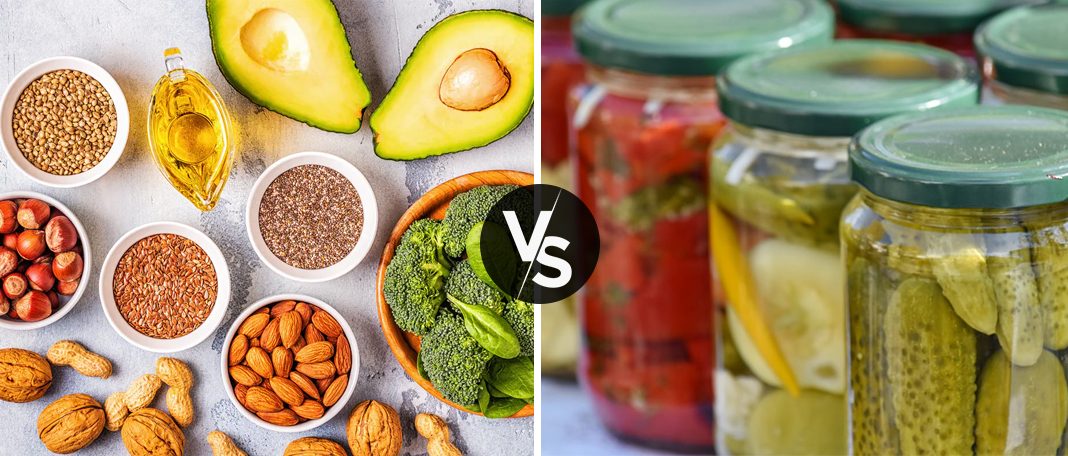Researchers have discovered a link between the gut microbiome and overall health, and that diet can alter the microbiome. They discovered that consuming fermented foods increased the diversity of the gut microbiome while decreasing inflammation markers. So the researchers have compared the effects of a high-fiber vs fermented diet on the gut microbiome in a recent study.
What is Gut Microbiome?
Bacteria, fungi, and even viruses can be found in the gastrointestinal tract. The activity and composition of these microorganisms are referred to collectively as the gut microbiota or microbiome.
According to the National Institutes of Health, probiotics are live microorganisms found in fermented foods such as cultured milk and yogurt, tempeh, miso, sauerkraut, and brine drinks that experts believe can help improve the diversity of the microbiome.
Prebiotics, on the other hand, are found in fiber-rich foods. According to the UMass Center for Applied Nutrition, these indigestible fibers are found in grains, fruits, and vegetables, and they also help feed the good bacteria in your gut.
Consuming kombucha tea and eating fermented foods like yogurt, kimchi, and fermented vegetables may help reduce inflammation associated with chronic conditions like type 2 diabetes, rheumatoid arthritis, and chronic stress.
High-Fiber vs Fermented Diet
The study compared two dietary interventions: a high fiber vs fermented diet. They chose these interventions because preliminary research has shown that both fermented food diets and high fiber promote positive changes in the gut microbiome.
The study included 36 participants, 73 percent of whom were women and 81 percent of whom were white and were all in good health. For three weeks, the researchers collected blood and stool samples from the participants to serve as a baseline. They then assigned the participants to one of two diets at random.
The first diet consisted primarily of fermented foods such as yogurt, kimchi, and kombucha, whereas the second consisted primarily of fiber. For four weeks, participants gradually increased their intake of fermented foods or fiber, depending on their group. Following that, they adhered to the full high fiber or high fermented food diet for another 6 weeks.
The fermented foods group increased their daily consumption from an average of 0.4 servings to 6 portions. The high fiber group increased their daily fiber intake from 21.5 g to 45.1 g.
Finally, the participants had four weeks to continue the diet if they so desired. The researchers continued to collect blood and stool samples at each stage of the study. The stool samples allowed them to identify any changes in the participants’ gut microbiome, whereas the blood samples revealed any changes in key biological markers of inflammation and general health.
At the end of the research, after analyzing the data, the researchers discovered that the fermented food diet significantly increased the diversity of the gut microbiomes of the participants.
So, according to the study, fermented foods increased the diversity of participants’ gut microbiomes while decreasing inflammation markers. On the other hand, participants who ate a high-fiber diet did not see an increase in the diversity of their gut microbiome.


















